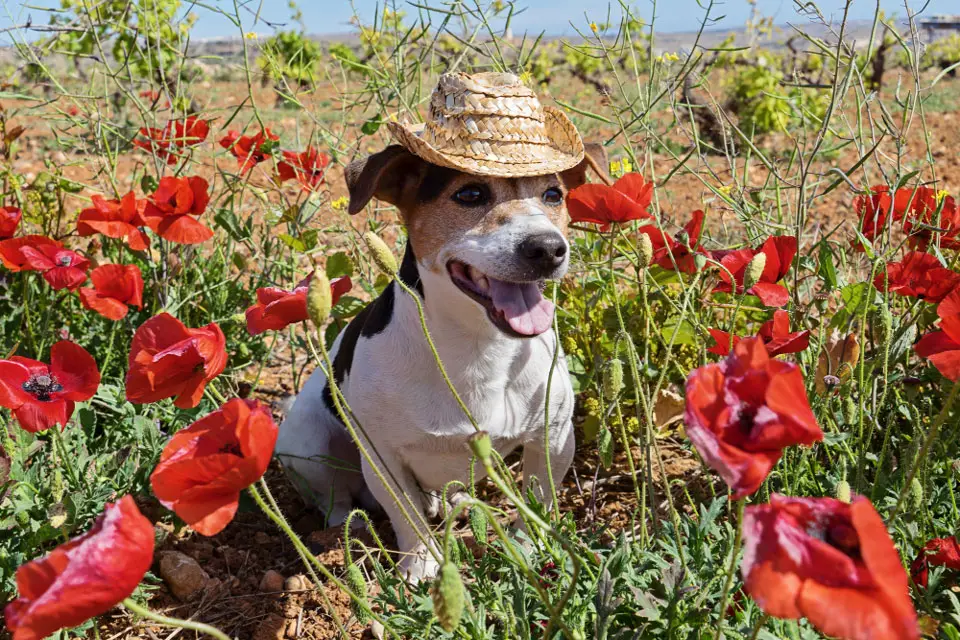Jack Russells are very good at hunting small animals. In fact, they have a very high prey drive and a natural instinct to hunt. This has many people asking if they will be good farm dogs, especially with regards to vermin control.
Well, I have all the answers right here. Join me as I take a look at Jack Russells and if they make good farm dogs. I will also be going over a few things you need to take note of when keeping a Jack Russell on a farm.
Let’s get started.
Are Jack Russells Good Farm Dogs?
Yes, Jack Russells are excellent farm dogs because they have a very high prey drive and like to hunt smaller animals such as rodents. This means that they will keep areas of the farm, such as a barn, free from vermin that can potentially harm the farm animals. They are fast, agile, and determined, and this enables them to catch even the fastest of vermin.
Keeping A Jack Russell On A Farm
A Jack Russell will thrive on a farm because he will have so much space to run around and play. It is an ideal environment for a Jack Russell to live in.
That said, there are a few things to take note of and to take care of when keeping a Jack Russell on a farm. Let’s have a look.
1.) He Needs To Be Trained
Training a Jack Russell is crucial when you plan on keeping it on a farm. Your pup might pester the livestock or try to hunt chickens, and this can be problematic if you don’t deal with it early on.
It is best to train your Jack Russell when he is still a puppy, and it is important for him to get used to being around smaller animals such as chickens. Jack Russells are very intelligent dogs, and with a little patience, you can train your pup to respect the other animals on the farm.
2.) You Need To Keep Track Of His Whereabouts
Your Jack Russell will love the open spaces of a farm, and more often than not, you will see him running around doing his farm chores.
But, since he is free to roam, it is important that you keep track of his whereabouts at all times. Jack Russells have a tendency to run away, and your furry friend might run after a small animal and breach the boundaries of the farm.
I would highly recommend that you invest in a collar with a built-in GPS. This will make sure that you can always see where your Jack Russell is roaming around.
3.) You Need To Keep Track Of His Health
Your Jack Russell will get into contact with rodents such as rats, and when he is hunting them, he might catch one with his mouth. Rats carry various harmful parasites and bacteria, so it is very important that you disinfect your pup’s mouth when he catches a rat or any other rodent.
The easiest way to do this is to use a bit of dog mouthwash. Just mix a small amount of mouthwash with the water in his bowl and make sure that he drinks as much as possible.
Also, brush your pup’s teeth with dog toothpaste. Be sure to also scrub the inside of your Jack Russell’s mouth to make 100% sure that you get rid of the harmful parasites and bacteria.
Conclusion
As you can see, Jack Russells make excellent farm dogs. They have a very high prey drive, so they will make sure that the other animals on your farm are protected from vermin.
While they will take care of vermin control, it is important that you take care of your pup and make sure that he has a good time living on the farm. Your first duty as a Jack Russell owner is to train your pup, and specifically focus on training him to stay away from farm animals such as chickens, and to treat the larger animals with respect.
Also, keep track of your furry friend at all times, and make sure to keep an eye on his health especially when he’s been hunting rodents. These carry harmful parasites and bacteria that can be detrimental to your Jack Russell’s health.


